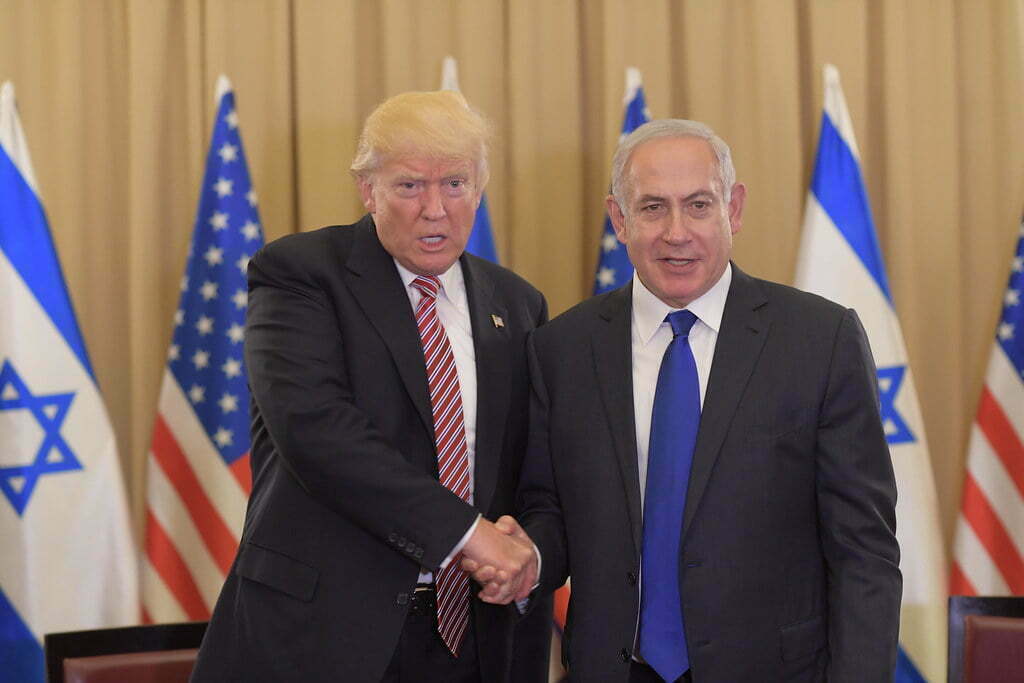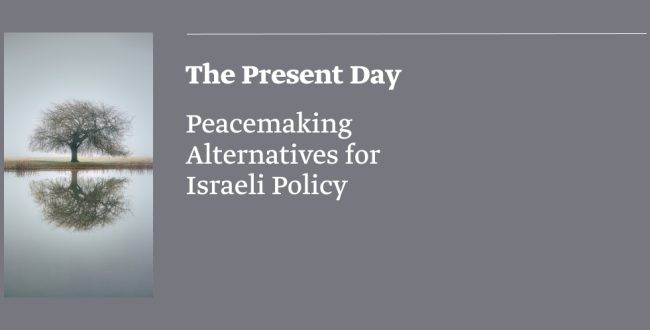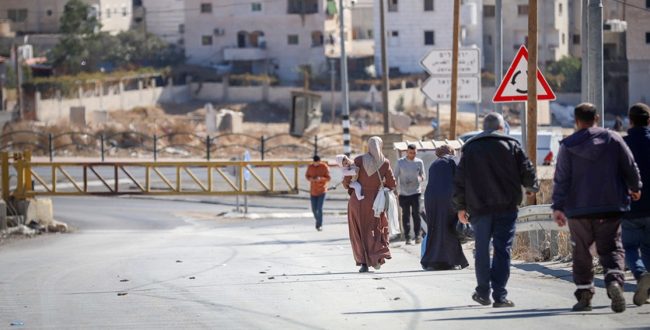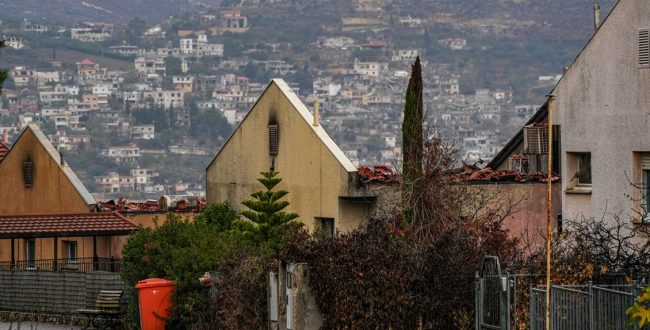By Shaul Arieli
The political plan of the Trump administration, the main component of the “Deal of the Century,” was eventually not presented in the economic workshop in Bahrain. The leaders of Arab states did take part, without much excitement, in the workshop. They did so because they need the United States for their contestation with Iran, and because they are trying to prevent the Trump administration’s adoption of the plans of the right-wing Israeli government to annex the occupied territories. Yet despite this participation, they are refusing to embrace the mirage known as the Deal of the Century. Arab leaders, and other leaders around the world, remember well the illusion that was the Bar Ilan speech by Netanyahu, delivered in 2009, and was perceived by most listeners as supportive of the establishment of a Palestinian state. These leaders do not intend to eat the warmed-up leftovers, this time presented as Trump’s Deal of the Century.
To his credit, Netanyahu has remained consistent with regards to his approach to the Israeli -Palestinian conflict. His late father, the historian Ben Zion Netanyahu, knew this well when he stated that “Benjamin does not support a Palestinian state, except under conditions that the Arabs will never accept. I heard this from him.”
It is not a coincidence that in the Bar Ilan speech Netanyahu adopted the “vision” of Begin and Sadat, which is autonomy – and not a state – for the Palestinians. In his 1995 book, Netanyahu presents an autonomy under Israeli control as the only alternative to preventing the dangers “inherent in the ‘peace’ plan of the Olso Accords.” Three years later, as prime minister, he affirmed that he offers the Palestinians an autonomy covering 40 percent of the West Bank. “The map of vital Israeli interests” that Netanyahu presented at the time does not differ from the current deal being offered by Trump, Friedman, Dermer and Netanyahu.
Netanyahu has repeatedly urged Arab leaders to “meet” and “talk peace.” He forgets to mention that he never agreed to even discuss the Arab League initiative that has been realizable for the past 17 years. Why would Arab leaders agree to meet with him and provide him with a triumph without anything in return, meaning, normalization before peace – exactly the opposite of what the Arab League Initiative offers?
After the Bar Ilan speech, the Arab leaders were briefly enamored with Netanyahu and his plan. In 2016 they even stepped up to bolster the “economic peace” approach he was trying to promote. International and regional actors knew that Netanyahu cannot lead a serious peace process after shackling himself with a right-wing coalition, and asked Herzog, the chairman of the center-left Zionist union bloc, to join the government to pull the rug under the feet of the far-right. U.S. Secretary of State Kerry, Abdullah, the King of Jordan, and the Egyptian President, Sisi, were involved in the effort to launch a regional initiative for peace with the Palestinians. This move would have entailed a recognition of Israel as a Jewish state and restarting the negotiations with the Palestinians, with the support of Arab states. Netanyahu, however, refused to offer anything in return to the Palestinians, in part due to the opposition of the Jewish Home party, a far-right coalition partner.
In his article “the Iron Wall,” published in 1923, Zeev Jabotinsky, the Revisionist Zionist leader, wrote that even if the larger Arab world was to recognize Zionism “it would not change the basic situation. It would not change the attitude of the Arabs in the Land of Israel towards us.” Netanyahu, as well as the Israeli political center, are leading the Israeli public astray when they hint that a “regional initiative” that would replace negotiations with the Palestinians is possible. Since 1988, the basic position of the Palestinians has been a Palestinian State based on the 1967 lines with east Jerusalem as its capital and a just and agreed-upon solution to the refugee question. Israel launched the negotiations process with the intention to end it with a political entity that is less than a state, as prime ministers Rabin and Barak said, and ran the negotiations as if it is haggling in a market, particularly when it comes to the issue of borders. Only in 2008 did Israel reach agreed-upon parameters with the Palestinians that are in line with international resolutions.
Netanyahu is constantly offering the Palestinians negotiations “without pre-conditions,” but what he means is that all that has been agreed between the two sides will be cast aside, while his own conditions will serve as the ground for negotiations. He is refusing to abide by the four agreed-upon parameters of that served as the basis for the 2008 Annapolis negotiations between Israel and the PLO: the 1967 lines as the basis with agreed-upon territorial swaps equal in size, a demilitarized Palestinian state, the establishment of a Palestinian capital in East Jerusalem, and a solution for the refugees based on compensation and return mostly to the Palestinian state.
Netanyahu has also declared that he is “committed to building in all parts of Judea and Samaria” (contrary to his statements in his Bar Ilan speech). In 2016, he stablished the Amichai settlement for those evacuated from Amona, thus becoming the first to violate the 1992 governmental decision to not establish new settlement. Among other steps, he also allowed for the legalization of dozens of outposts (illegal even under Israeli law), and approved the decision of the outgoing Minister of Justice, Ayelet Shaked, to apply all new laws on the settlements.
Netanyahu is not satisfied with the 1993 declaration of the Palestine Liberation Organization (PLO) to “recognize the right of Israel to exist in peace and security” and demands that the Palestinians “Palestinians must clearly and unambiguously recognize Israel as the state of the Jewish people.,” which raises justified concerns about the status of Israel’s Arab citizens. Netanyahu states that “Jerusalem must remain the united capital of Israel,” thus contravening not only international resolutions, but also the Oslo Accords. He demands that the future Palestinian state will be demilitarized and bound by endless security arrangements, although the Palestinians have already agreed to the demilitarization of their state and extensive security arrangements.
In response to all their demands, Netanyahu and Trump offer “economic peace,” which will benefit Israel to a much greater extent than it will benefit the Palestinians. Although Netanyahu claims that “an economic peace is not a substitute for political peace,” he does not offer any realistic political plan and denies all previous understandings reached between Israel and the Palestinians in the multiple previous rounds of negotiations. Alongside economic peace, Netanyahu generously vows to “discuss” the borders of the final solution: without offering a map, an outline, principles or parameters. Truly, what a great deal.
Netanyahu’s endless manipulations of public opinion concerning his position on the two-state solution is also apparent in his approach toward Hamas. He opposed reconciliation between the Palestinian Authority and Hamas, although such a reconciliation would allow Mahmoud Abbas to contain Hamas within the PLO and force it recognize the Oslo Accords. Netanyahu had a decade to “overpower Hamas,” as he has vowed to do, but he is not interested in doing so. On the eve of the first round of elections in 2019, he told a meeting of the Likud party members: “those who oppose a Palestinian state should support the transfer of [Qatari] funds to Hamas. Maintaining the separation between the [Palestinian] Authority in the [West] Bank and Hamas in Gaza is helping us prevent the establishment of a Palestinian state.”
Israel and the United States must realize that the road to Riyadh and Doha passes through Ramallah. Israel need to propose a deal that will be seen as fair by the Palestinians, and would entail compromises on both sides. This compromise is preferable to the alternative, which is the loss of the national vision of both sides – for Israelis, a democratic country with a Jewish majority, acceptable by the international community and existing in peace and security; for the Palestinians – an independent country based on the 1967 lines with east Jerusalem as its capital, and a settlement of the refugee issue.
Dr. Shaul Arieli (Retired Colonel) specializes in the Israeli-Palestinian conflict. He was the commander of the IDF’s northern division in Gaza, the head of the interim agreements’ directorate under Prime Minister Rabin, and the head of the negotiation’s directorate under Prime Minister Barak. Today he is a Senior Fellow in the Economic Cooperation Foundation (ECF) and a lecturer at the Hebrew University and the Interdisciplinary Center (IDC) in Herzliya. His forthcoming book “A Border Between Us and Them” will be published in early 2020 in English.

















